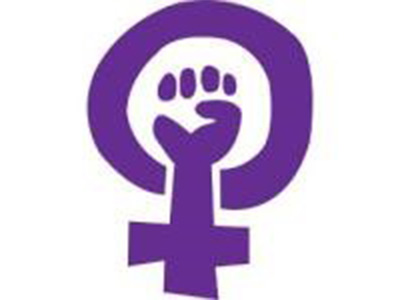
Belfast, Northern Ireland, a vibrant, creative and warm city with a troubled history, was the setting for the second conference on abortion, this time entitled “Abortion and Reproductive Justice Conference: The Unfinished Revolution II”. The conference, hosted by Ulster University, brought together an interesting, fruitful, and inspiring combination of activists and academics from countries such as, Australia, Canada, India, Ireland, Italy, Northern Ireland, the Philippines, Poland, Russia, Scotland, South Africa, Spain, Thailand, Turkey, UK, USA and Zimbabwe, and covered a diverse range of topics such as abortion stigma, barriers to legal reform, medicalisation, human rights, migration, provider refusal, activism, abortion narratives, sex-selective abortion, and religion. This diversity was carried over into the format of the presentations. While most presentations took the standard format (single presentation or a panel presentation), some presentations drew from the performance art genre. In addition, open forum discussions, which proved to be vibrant discussion spaces, were included in the conference programme. All presentations in some way sought to address the key thematic question posed by the conference: “how does abortion sit within the reproductive justice framework?”.
The opening Keynote Address was given by Marlene Gerber Fried, a long-time reproductive rights activist, founding president and long-time board member of the National Network of Abortion Funds and the Abortion Rights Fund of Western Massachusetts, who is currently working on abortion access internationally with the Women’s Global Network for Reproductive Rights. Her speech set the tone, one of inspiration, for the rest of the conference. This inspirational tone was taken up the concluding Keynote Address by Dr. Sylvia Estrada-Claudio, a doctor of medicine who also holds a PhD in Psychology, Professor of the Department of Women and Development Studies in the College of Social Work and Community Development, University of the Philippines, and author of two books entitled: Rape Love and Sexuality: The Construction of Woman in Discourse (UP Press, 2002); And Then She Laughed: Experiences in Counseling Women (Anvil Press, 2015).
Particular presentations required challenging and thought-provoking reflection from delegates, as the extract below suggests.
“We cannot continue to cede the ground of foetal personhood discourses to ‘pro-life’ advocates as this results in a feminism, and more particularly, a reproductive justice movement which does not speak to the very many and varied experiences of women who access abortion services and thus risks marginalising particular groups women. This includes women who take up foetal personhood discourses in verbalising and giving meaning to their abortion experiences.” -Jabulile Mavuso
The conference was also an eye-opening experience in terms of what can be done to create and improve access to safe abortion in restrictive contexts, highlighted in the reflection below.
“Before the conference I felt helpless in changing the Zimbabwean laws. Seeing and talking to people in Northern Ireland where religion and culture dominate the abortion debates, just like in Zimbabwe, it was encouraging to see that abortion laws can be changed in whatever context. Another key discussion point was on the importance of the work of organizations like women on web and how this can be replicated in an African context. The importance of taking abortion especially early term ones from the health arena to the internet was very important”- Malvern Chiweshe.
Having presented in a panel of papers at the conference, our experiences of the conference was not simply one of enjoying and being inspired by the presentations given by our fellow delegates, but also of participating in an engaged and fruitful discussion held after our own panel presentation, which was entitled “Understanding reproductive justice across different contexts”. The first paper was presented by Jabulile Mavuso. Using data from South Africa where abortion laws are liberal, shows the insufficiency of a rights only approach as it masks how ‘choice’ in reproductive decision-making depends on the various conditions of women’s lives. The second paper, presented by Malvern Chiweshe, showed, using data from Zimbabwe, how when narrating their abortion experiences women spoke in socially sanctioned manner that negates a rights discourse. Catriona Macleod presented the last paper written by herself, Merran Toerien and Sian Beynon-Jones, further developed an understanding of reproductive justice by linking it to the concept of reparative justice. This paper used using South Africa and Britain as case studies.
The conference was certainly a once-in-a-lifetime opportunity which will stay with us for a long time to come.
Jabulile Mavuso with Malvern Chiweshe
